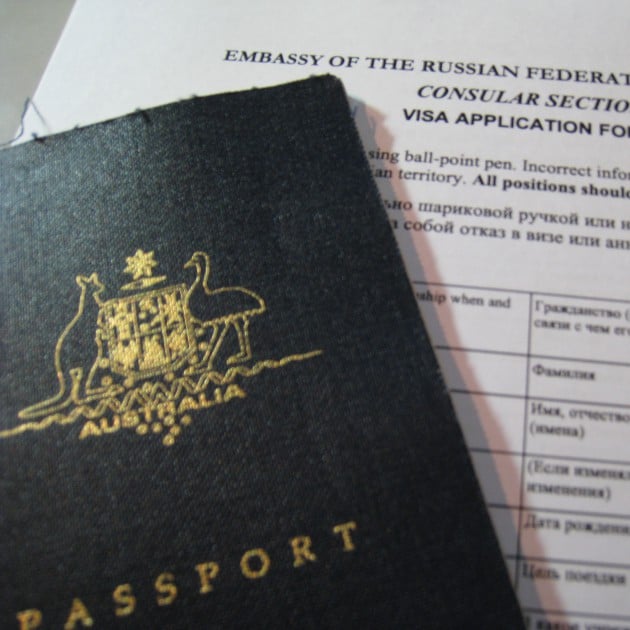What You Need to Know About Foreign Language Visa Tests

Josh Stewart/Flickr
The paperwork involved in getting a foreign visa is quite arguably the least exciting aspect of planning a trip overseas.
Each country has different specific requirements, application processes and costs involved–while some countries do not require visas at all.
Luckily there is a lot of information online on each specific country’s visa requirements, and with some research it is easy to find out exactly what you need to legally enter any foreign country you wish to visit.
Lonely Planet’s visa guide and doyouneedvisa.com are helpful for gathering general information, but it’s best to always check official government websites for current information, as visa requirements change frequently.
How Easy is it to Obtain a Foreign Visa?
Applying for a visa is a lengthy process that requires an array of specific documents. And you need to bring all of this required documentation to the consulate of the foreign country you will be visiting.
A fee is typically attached to any application, and is non-refundable even if your application is rejected. To avoid such a fiasco, check (and double check!) online that you have the exact documentation required, as the rules and laws for acquiring visas are incredibly stringent.
As mentioned earlier, each country requires different documentation: common items include recent photographs, passports, identification documents, proof of funds, and proof of accommodation — and for a working visa, proof of employment.
The consulate then has you fill out more paperwork, and if required, take language tests to prove a certain level of fluency in the required language. Take free online language level tests with instant results before heading off to your appointment.
Each document goes into great detail and specificity, and if the consulate doesn’t think that you have a good enough reason to visit the country, they will likely reject your application. If rejected, you must wait a certain amount of time before reapplying.
Which Countries Require Foreign Language Tests for a Visa?
Visa requirements vary according to the country, the reason for your visit, the length of your stay, and the number of entries you will be making. A foreign language test is mainly required when applying for a student or working visa and your school or workplace requires a certain level of fluency.
The UK is one country that requires foreign language tests for both working and student visas. Due to a recent spike in fraudulent test results, the tests accepted by the consulates are now frequently updated with far stricter rules and guidelines attached.
In a recent report by the Guardian, over 50,000 English language tests taken by foreign students to extend their British visas have been declared invalid or questionable as a result of an official investigation into alleged cheating.
Planning on taking a trip to the U.S. or U.K. and wonder whether you’ll pass the language test? Take our English Level Test to see how you’d do and how to improve.
Importance of Speaking the Language
When foreigners enter a work environment, they must be able to communicate effectively. Responsibilities such as presentations and meetings with a supervisor create enough stress without the added worry of being unable to fully understand the conversation or express oneself effectively. Miscommunications can be a major drag on the workplace, and they are an unfortunately common result of language barriers, leading to easily avoidable mistakes and confusion. By developing fluency in a language, you avoid such problems and empower yourself to speak clearly and confidently in the workplace.
Foreigners struggling to communicate their ideas and understand coworkers can also make activities take longer than necessary, hindering one’s status as an asset to a company.
Does Speaking the Language Pay Off in Integrating Foreigners
In a New York Times article on the German Plan to Integrate Immigrants Focuses on Schools, Germany’s Interior Minister Thomas de Maizière claims that learning a country’s native language is an important key to successful integration.
The article blames the lack of basic language skills amongst German school children with an immigrant background as the reason for their collective failure to complete a basic secondary education. According to Mr. de Maizière, over 15% of teenagers with an immigrant background quit school, while only 6.2% of German teenagers drop out.
The interior minister’s point here is that fluency in a country’s native language, even at a young age, can directly facilitate successful integration. Being fluent in a country’s language makes it so much easier to begin to understand its culture, easing foreigners into a new way of life and allowing them to feel at home in a new country.
In this same vein, it is in a foreigner’s best interest to become as fluent as possible in a country’s native language, not only to be able to pass the language test with ease, but to easily integrate themselves into life in a foreign country and to make the most of one’s time spent abroad. If you are in need of language lessons, check out the options Language Trainers offers. They’ll work with your skill level, schedule, and availabilities to design a course package tailor-made to your needs.
